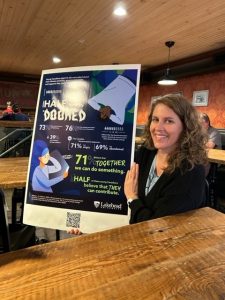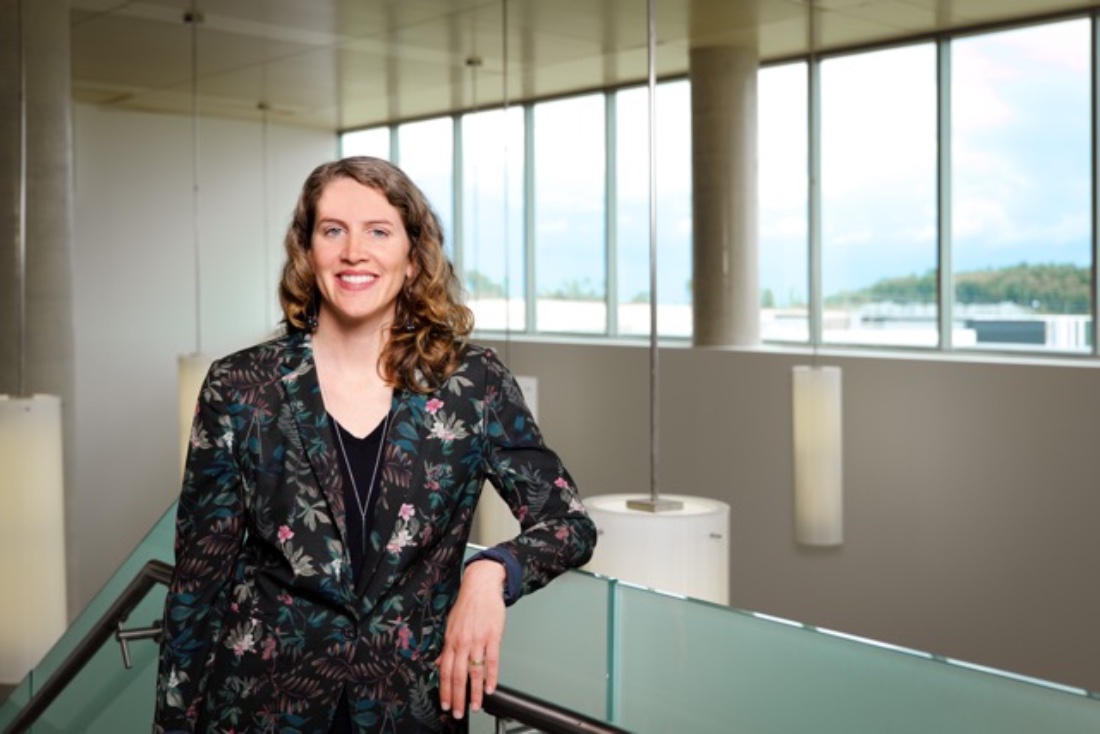Teachers, parents and grandparents: Take note! Recent research reveals how students are responding to the climate emergency—and the results are not encouraging.
Dr. Ellen Field of Lakehead University will offer a public presentation on this subject on Tuesday, September 19th at 7:30 p.m. at Creative Nomad Studios (23 Mississaga Street West) in downtown Orillia. Dr. Field is the co-author of several studies on how climate change is being studied in Canada’s schools—and its effect on the younger generation. Her latest article, “Climate Emotions and anxiety among young people in Canada: A national survey and call to action,” was printed in The Journal of Climate Change and Health this year.
 A 2021 study of 10,000 youth in ten countries showed a higher level of climate anxiety than ever seen before. A follow-up study conducted by Dr. Field of one thousand 16 – 25 year-olds in Canada confirmed this result, correlating student anxiety with a sense of betrayal, palpable uncertainty and even anger over their perception that our current systems are not protecting the planet. Most youth believe they will not live the quality of life their parents did.
A 2021 study of 10,000 youth in ten countries showed a higher level of climate anxiety than ever seen before. A follow-up study conducted by Dr. Field of one thousand 16 – 25 year-olds in Canada confirmed this result, correlating student anxiety with a sense of betrayal, palpable uncertainty and even anger over their perception that our current systems are not protecting the planet. Most youth believe they will not live the quality of life their parents did.
No province currently has a mechanism to ask youth themselves what’s needed to counter this trend. While young people in the study weren’t looking for any particular socio-emotional support, they were seeking honesty about the risks and uncertainties they see in the world around them. “Just teach it” was their message, amidst their fear that public education is becoming unresponsive and untrustworthy. A majority of young people are turning to social media rather than to their school classrooms for information. Dr. Field noted that the Simcoe County District School Board (SCDSB) does not yet have a Climate Change Action Plan.
“We’re losing against the counter-forces on social media,” says Dr. Field, based on her research among Canadian students to benchmark climate education across Canada. “Individual teachers are making the difference.”
“Changes are coming from the goodwill of teachers, but not from the system. Teachers are massively important. They’re going rogue and teaching about climate change in places where there are no curriculum expectations. A comprehensive and systematic review of curriculum is needed as there is a lot of inconsistency within curriculum policy. One-third of our survey participants don’t talk about climate change, and another third don’t feel heard when they do.”
What can students, schools, parents and grand-parents do in the face of this crisis?
“Our young people can seek out opportunities for climate action, which is a proven antidote to anxiety,” says Dr. Field. “For example, concerned students in Orillia are joining Sustainable Orillia’s Youth Council, active in the three local high schools.”
Dr. Field’s Sept. 19th presentation at Creative Nomad Studios will address how students, schools and parents can be part of building community resilience.
If you are concerned about young people and children in your family, come, join the conversation, and learn how we can help our youth deal with their anxiety regarding the climate crisis.
Coffee, tea and desserts will be served before the presentation.
Please register here as seating and desserts are limited. Thank you.

